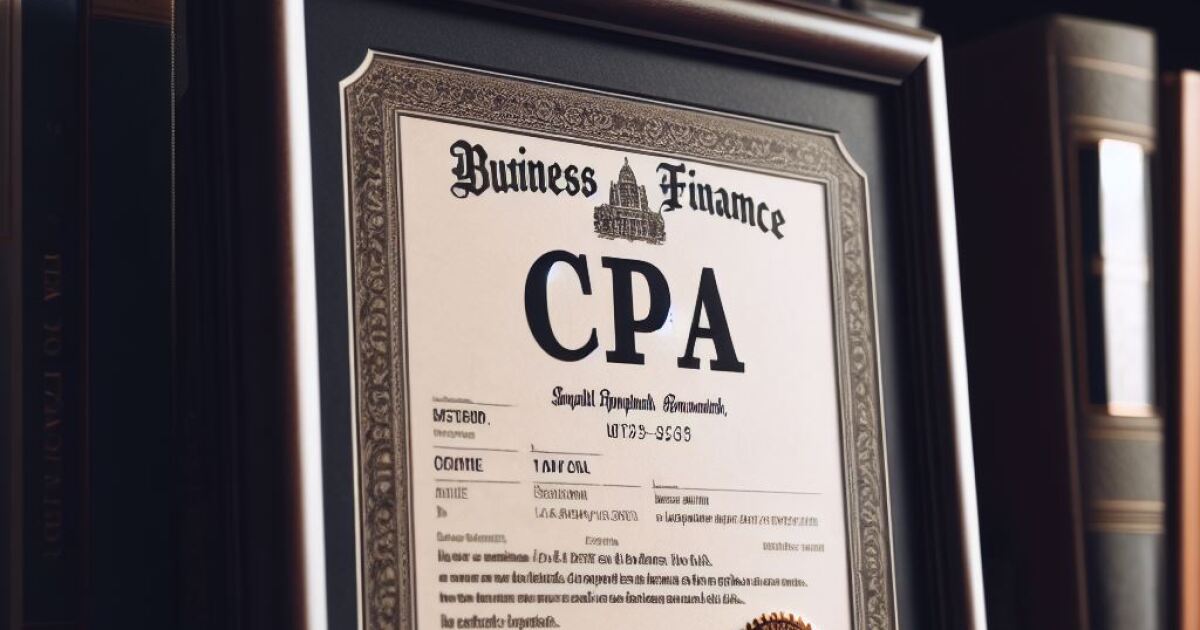The 150-hour requirement for obtaining a CPA license has led to a decline in Black and Latino CPAs of up to 26%, according to a research study.
The
The American Institute of CPAs voted in 1988 to require all new CPAs to complete 150 credit hours of college education. Each state board of accountancy had discretion over when to enact the 150-hour rule, but starting in 1983 with Florida and steadily thereafter, states began increasing the education requirement for CPAs from 120 to 150 credit hours.
Tennessee followed Florida’s lead in 1993, and by 2015 all states and territories had adopted the 150-hour rule. Some state CPA societies, such as the

Microsoft Bing Image Creator
The study found a 26% decline for minority CPAs, as opposed to a significantly smaller 14% decline for nonminority CPAs after the educational requirement for the CPA license increased. After comparing the change in entry by minority and nonminority groups within the same state and year, the researchers found a 13% greater drop in minority than nonminority entry following enactment of the state laws.
“We found a 14% overall (i.e., regardless of race) decline in entry following 150-hour rule enactment,” said Massachusetts Institute of Technology accounting professor Andrew Sutherland, one of the co-authors of the study, in an email. “For minority (Black or Hispanic) candidates, the decline was 26% (so a 12-13% greater decline with some rounding difference).” His fellow researchers included Matthias Uckert of the University of Amsterdam and Felix Vetter of the University of Mannheim.
The researchers also collected data on disciplinary actions involving CPAs, and found that over the course of their careers, approximately 0.5% of CPAs face discipline for incidents and violations reported by their state. They then did a textual analysis of disciplinary action descriptions to see how the 150-hour rule affects different aspects of CPA behavior. Comparing the pre- and post-150-hour rule groups, they found no difference in the frequency of either administrative violations (such as failure to complete continuing professional education requirements or pay dues) or more serious offenses including tax fraud, negligence in preparing financial statements, theft of funds or documents, or engaging in discreditable acts.
They also examined data from another study containing over 8 million job postings from the Boston Globe, New York Times and Wall Street Journal to see whether the 150-hour rule influenced employers’ perceptions of CPA quality. They found no association between enactment and either the number of postings for accountants or employers’ preference for candidates with the extra year of study.
“Most states did not require specific accounting or even business courses, leaving candidates free to choose the coursework they pursue to complete the extra 30 credit hours,” they wrote. “Overall, our analyses of exam passing patterns, discipline records, and job postings find scant evidence of CPA quality benefits associated with the 150-hour rule.”
“You might say, ‘Well, maybe there’s some benefit of requiring the extra year; perhaps candidates get better training, and then that translates into improved service quality for consumers of CPA services.’ But that doesn’t seem to be the case,” Sutherland told an
AICPA president and CEO Barry Melancon defended the importance of the 150-hour rule in allowing CPAs to practice across state lines
“The big issue on changing 150 is we have mobility in this country,” he said. “It was a hard slog to get it. It’s a political environment in the states in which we passed mobility. For you sitting here in New York, you can service a client anywhere in the country. You don’t need to have a license anywhere else except Hawaii. Mobility hangs predominantly on the basis of education, experience and exams. To undo that, you’ve got to start passing legislation in states. It took years in New York.”
Melancon noted that the AICPA has been participating in a National Pipeline Advisory Group that has been working on finding out why students are dropping out of the accounting field. It’s also looking into regulations and ways to make the 150-hour CPA licensing requirement less costly and more flexible, as in one
The Center for Audit Quality released a
The U.S. Bureau of Labor Statistics
The National Association of State Boards of Accountancy has established a task force that is
Last year, the





Thanks for sharing. I read many of your blog posts, cool, your blog is very good.